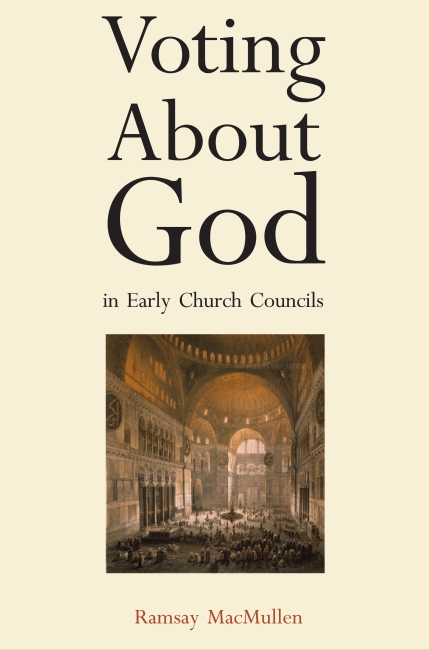Voting About God in Early Church Councils
Ramsay MacMullen
Jul 31, 2006
Yale University Press
192 p.
ISBN: 9780300115963
http://yalepress.yale.edu/yupbooks/book.asp?isbn=9780300115963
In this study, Ramsay MacMullen steps aside from the well-worn path that previous scholars have trod to explore exactly how early Christian doctrines became official. Drawing on extensive verbatim stenographic records, he analyzes the ecumenical councils from A.D. 325 to 553, in which participants gave authority to doctrinal choices by majority vote.
The author investigates the sometimes astonishing bloodshed and violence that marked the background to church council proceedings, and from there goes on to describe the planning and staging of councils, the emperors' role, the routines of debate, the participants’ understanding of the issues, and their views on God’s intervention in their activities. He concludes with a look at the significance of the councils and their doctrinal decisions within the history of Christendom.
Ramsay MacMullen is emeritus professor in the Department of History at Yale University and lives in New Haven, CT. Among his many previous books are
Christianizing the Roman Empire,
Corruption and the Decline of Rome, and
Christianity and Paganism in the Fourth to Eighth Centuries, all published by Yale University Press.
Alex's comment:
A Catholic good friend of mine once remarked that the presence or absence of God, and what Truth is, is not by voting. I could not find a good reason to disagree with him. Until now, that I encountered this book. This book reminds us of a simple fact: the early Roman Catholic Church did precisely that---voting about God! In other words, all Christian doctrines, Truth regarded by Christians, came into being by voting.